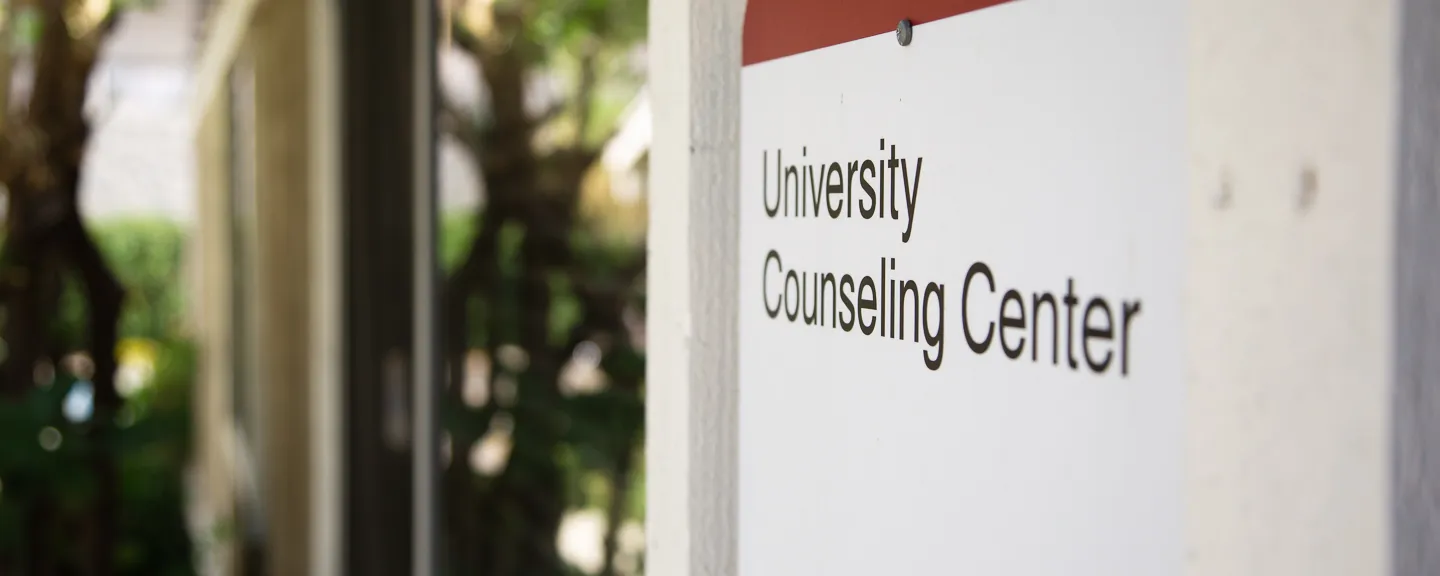- Home
- >
- APU Articles
- >
- News Article
Mental Health Resources for College Students
August 02, 2018 | Written By Naomi Mannino

“Your relationship with your student will continue to be one of the most important contributors to his or her success at college,” says Bill Fiala, PhD, director of the University Counseling Center at Azusa Pacific University. “How you respond to your child’s challenges will influence how they deal with them, and ultimately impact their resilience in future circumstances.”
Here’s what you need to know about the different resources your college student can leverage on campus.
When Students Need Help
Your child will likely experience new (and higher) levels of stress and adversity during their time in college, Fiala explains. This is natural and part of their individual growth.
“Some of how a student responds will be innate—the unique, God-given strengths and characteristics that make your emerging adult the person they are,” Fiala says. “Also contributing, however, will be all that she or he has learned about coping with adversity prior to getting to college.”
While many students may seek help on their own, if you do notice your child struggling—or if they come to you to talk about it—you’ll want to be able to listen and handle it appropriately. You can encourage your student to make use of on-campus mental health resources for help with any challenges or anxiety.
Using the University Counseling Center
All enrolled students at Azusa Pacific are eligible for confidential counseling services at the University Counseling Center (UCC) for help in handling a crisis or the stress and anxiety that can crop up during college years.
For students in crisis, a counselor from the UCC will provide immediate care and assessment to help formulate a plan for getting through a challenging time. Students can opt for one-on-one private counseling or any of the group counseling sessions that focus on specific issues of student life (such as stress management, dealing with anxiety, and healthy relationships). Or, they can opt to use any combination of the available on-campus resources, as well as any community referrals they feel will be helpful.
Parents who are concerned about their student are welcome to consult with UCC staff by phone or in person. Just call the center, identify yourself as a parent of an enrolled student, and ask for a consultation with a counselor.
The UCC professionals realize that parents often feel entitled to know everything their student may be talking about with the counselor, and it can be frustrating to feel helpless about struggles your child may be having. But remember, as a professional counseling service—and in accordance with professional ethics and California state law—APU Counseling Center staff members are required to keep counseling-related student information private. The staff can share information if your student gives written permission to share the information with a parent, if the counselor believes that a student may be a danger to himself or herself or others, or if there is some abuse issue suspected.
Building Strong Campus Connections
“College students feel a greater sense of belonging and tend to perform better in school when they feel connected to their professors and their peers,” says Fiala.
It’s a great idea to encourage your student to get involved with many of the on-campus opportunities for the community. For example, the mentoring programs offered through the Office of Spiritual Life match APU students with an adult Christian mentor who can guide them in strengthening their personal relationships, spiritual growth, and personal responsibility. Depending on the relationship, they can meet for prayer, personal support, Bible study, conversation, and fellowship.
The APU campus pastors are also available to meet with students individually and are an important part of the mental health resources available at APU. They can listen and counsel students through distress and indecision, and be a source of support as students grow in their faith.
“The great thing about resilience in people is that new skills can be learned and new practices incorporated to increase one’s ability to rebound from adversity,” Fiala adds. It can be an ongoing process, but there are many different ways to ensure your student is on the right track.